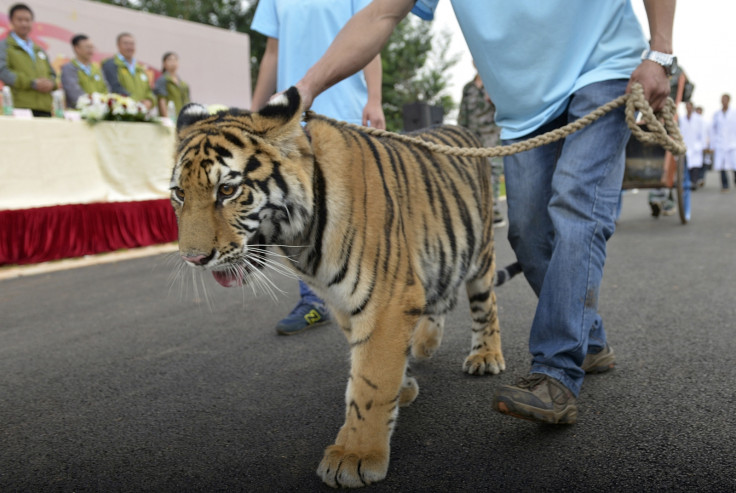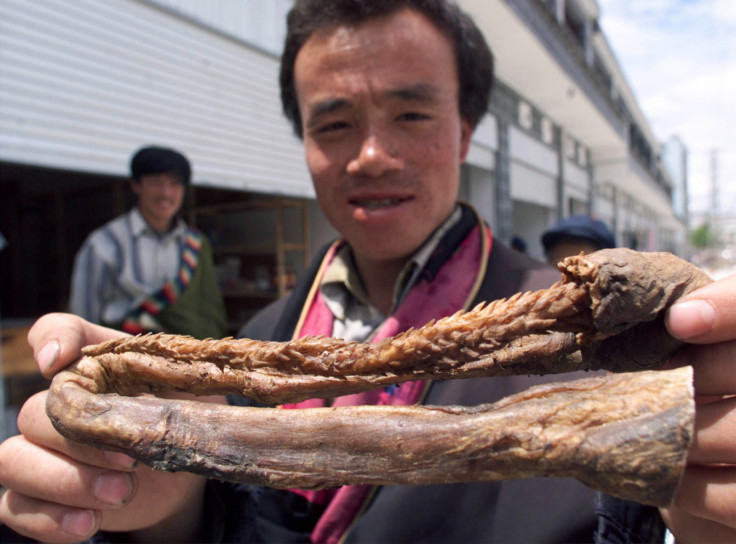China: Businessman jailed for 13 years for eating tigers and drinking their blood
'Xu' organised trips for people to buy and eat slaughtered tigers. Police seized tiger meat, bones and penis from his home.

A Chinese businessman has been jailed for 13 years for buying and eating three tigers.
The wealthy real estate developer, identified only by his surname Xu, had a "special hobby of grilling tiger bones, boning tiger paws, storing tiger penis, eating tiger meat and drinking tiger-blood alcohol," state news agency Xinhua reported when he first stood trial in June.
Xu organised three trips in 2013 for 15 people, including himself, to Leizhou in Guangdong province, southern China, where they bought tigers that were killed and dismembered as they watched, government-run news site Gxnews.com.cn reported on Tuesday.
One of the guests filmed the tiger being slaughtered. The footage, shot on a mobile phone, was later seized by police.

Police also recovered eight pieces of animal meat and bones from a refrigerator in Xu's home, some of which have since been identified as tiger parts, including a penis, the report added.
Sixteen geckos and a cobra were also found among the dismembered parts.
A court in Guangxi sentenced Xu to 13 years imprisonment and a 1.55 million yuan (£161,000) fine.
The other 14 people on the Leizhou trip were jailed for terms between five and six-and-a-half years and given smaller fines. The sentencing took place earlier this year but has not been reported by China's state-controlled media until now.
The group appealed their sentences but a higher court upheld the ruling on Monday.
Tiger bones are a historic ingredient of traditional Chinese medicine, and are believed by some to strengthen the human body and boost a man's sexual performance, although there is no scientific evidence for either of these claims.
Decades of trafficking the creatures and killing them for parts have slashed the tiger population from 100,000 a century ago to around 3,000, placing the tiger on the endangered species list.
© Copyright IBTimes 2025. All rights reserved.





















